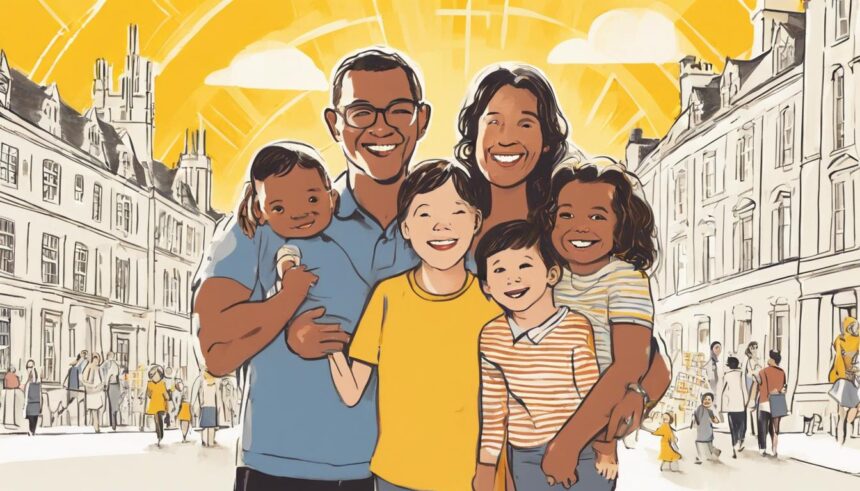The city of Cambridge, Massachusetts, showcases promising outcomes from its guaranteed income pilot, RISE, evidencing the program’s impact on employment rates and overall quality of life for underprivileged families.
In an innovative move to combat financial insecurity and promote social welfare, Cambridge, Massachusetts, has emerged at the forefront of guaranteed income programs in the United States. The preliminary results of the Cambridge RISE (Recurrent Income for Success and Empowerment) pilot program, initiated in September 2021, have recently been unveiled, casting a hopeful light on the potential of direct financial assistance to foster economic stability and improve quality of life for individuals and families living on the edge of poverty.
The RISE program provided a no-strings-attached monthly payment of $500 to 130 single-caregiver families for 18 months. These families, selected through a rigorous process, had incomes falling below 80% of the Area Median Income (AMI) and were caring for at least one child under the age of 18. The impacts of such financial autonomy were measured against a control group of 156 similar residents who did not receive these payments.
One of the striking outcomes from the research is the enhanced rate of employment among the recipients of the guaranteed income. Contrary to the common skepticism that unconditional cash assistance might deter recipients from seeking employment, the data from the Cambridge pilot tells a different story. While the employment rate among those who received the monthly payments increased from 36% to 40%, the control group saw a slight decline in employment rates. This finding adds a significant counterpoint to the debate surrounding work incentives and social support mechanisms.
Moreover, the financial security endowed by the guaranteed income not only reflected in recipients’ higher income stability and their ability to handle sudden expenses but also translated into broader social benefits. Participants reported an enhanced capacity to support their children’s education, improved housing and food security, and a reduction in the stress associated with living paycheck to paycheck. These outcomes not only address immediate financial needs but also pave the way for long-term social and economic mobility, underlining the potential ripple effects of such pilot programs on community well-being.
The initiative spearheaded by Councillor Sumbul Siddiqui, during her tenure as Mayor of Cambridge, in collaboration with the Cambridge Community Foundation, CEOC, UpTogether, and other partners, underscores the significance of a coordinated community effort in addressing poverty and fostering social equity.
Echoing the successes of similar programs in cities like Stockton, California, and Saint Paul, Minnesota, the Cambridge RISE findings contribute to a growing body of evidence supporting the case for a federal guaranteed income. This initiative aligns with broader movements, led by organizations such as Mayors for a Guaranteed Income, to normalize direct financial assistance as a viable policy tool for reducing inequality and improving the living standards of millions of Americans.
Following the pilot, Cambridge has taken a bold step forward with the launch of Rise Up Cambridge, a city-wide cash assistance program funded by American Rescue Plan Act funds, aimed at extending $500 in monthly payments to approximately 2,000 qualifying families. This expansion not only signifies the pilot’s success but also positions Cambridge as a model for other cities and states contemplating similar measures to combat poverty and empower their citizens.
As discussions on economic policy continue to evolve, the experiences of Cambridge RISE serve as a testament to the transformative potential of guaranteed income programs. By providing financial breathing room, these initiatives are reshaping conversations around social support, work incentives, and the role of government in ensuring economic stability for all citizens.





